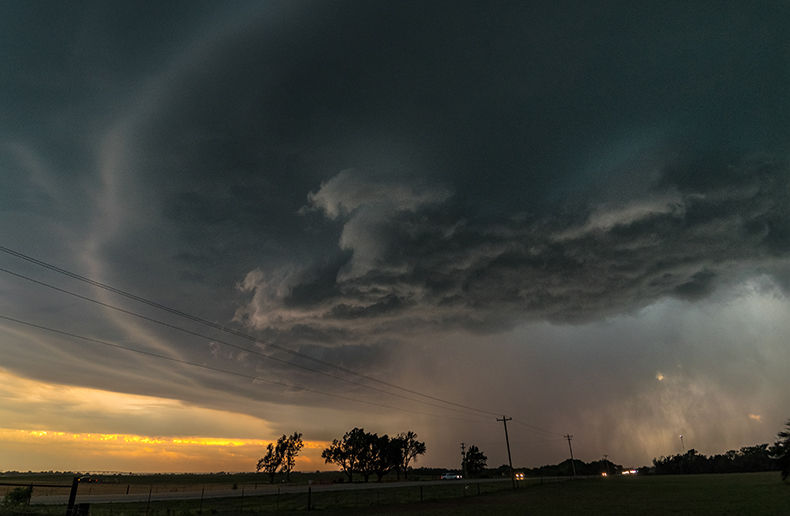The New Year brings with it sweeping changes in the insurance industry. One of those is that Toronto Mutual Life and Western Life are amalgamating. Van Campbell, President of the two companies, is hopeful that the move will lead to clarity for the company’s brokers, and to niche leadership for the company in general.
“The amalgamation could have taken place sooner from a technical point of view,” states Mr. Campbell, “but it just made sense to put it in the order of events. You spend a lot of time doing an amalgamation, you spend a lot of money, so you want to be sure you are doing it for a good reason.”
The companies have applied for a name that was still under review at press time.
“I didn’t come to the company until 1998, and when I came here my first priority was to get the companies operational, get them on their feet, really get them going somewhere,” Mr. Campbell explains. “They weren’t exactly burning up the market. They were two small companies that weren’t really supercharged out there. We had to develop new products and insure that our distribution channels were in place and were going to respond to us. Those were my priorities.”
Distribution
The new entity is a product of its time. As recently as four or five years ago, says Mr. Campbell, the Canadian insurance industry had “marketing bigots who said that the only way to distribute life insurance was through a career agency system, and then you had others who said that the only way to do it was through the MGA system. Still others said the only way was through PPGA brokers.”
In the last while all of that has gone by the wayside, he continues. He points to Sun Life and Canada Life, who have opened up many more channels. “In the past, we had one set of brokers that sold Toronto Mutual products, and a different set that sold Western. If you are a broker you would only be licensed with one company, not both.”
“Western Life was tagged as being a company that distributed through MGAs. Toronto Mutual was known as a company that distributed through PPGAs, without the MGA in the middle.”
“You don’t keep two separate companies because you have two separate distribution channels,” adds Mr, Campbell. “You have one company that you grow and develop as a very efficient manufacturing engine, and then you offer your products through all distribution channels.”
For the moment, distribution will continue through the existing broker intermediary channels. In terms of product development and distribution, Mr. Campbell does not rule out white-labelled products. “Today the name of the game is to get more distribution. For companies that are in the manufacturing business, one way to grow their capability is to provide the white labelling of products.”
Targeting the niche
The new entity will target niche markets. Existing products like For Women Only, a Toronto Mutual product offering financial support in the event of diagnosis of one of the seven “female cancers,” will continue and other products will also be considered.
“There are two target markets: protection and security, and well-being support,” continues Mr. Campbell. “Within that there’s the family market, the business, blue-collar, and upscale markets. All of those four require a variation of the same products, which are whole life and term insurance and well-being support, using critical illness, long-term care, final expense planning, and also accident and sickness products. We don’t offer universal life and we won’t, because we feel that there’s a market for the guaranteed nature of whole life.”
Beyond providing products that Toronto Mutual and Western had already been offering, such as those involving protection and security, the new company will also focus on what Mr. Campbell calls well-being support. That includes products as critical illness and a newer product called ‘pre-need’ or ‘final expense planning,’ which essentially pays for funeral expenses.
“These are very specific niche markets,” says Mr. Campbell “and that whole well-being arena – which includes long term care, which we plan to develop in 2002 – is made of products which pay the living and are designed to improve well-being as opposed to being designed to provide protection and security.”
“That market is very new for us and it is a focus for us. Small companies are only going to survive if they find niche markets to deal in, and that’s specifically what we’re doing – we are moving more and more into the niche market arena of well-being. We will still offer those other products though. A lot of our distribution right now depends on our being able to provide whole life and term products, so we will have those products.”
Genisystems remains
Mr. Campbell is also the President and CEO of Genisystems.ca Services, a business process outsourcing company and subsidiary of Toronto Mutual that for the last two years has been the administrator for Toronto Mutual and Western.
“What we did was take the Toronto Mutual and Western administrative capacity – the people, the computers, and all the rest – and we moved it away,” says Mr. Campbell. Instead of positioning it as an expense component of the Toronto / Western Life entity, we moved it away completely and formed Genisystems. Now we treat it as an investment rather than as an expense and we are using it as a platform to offer services to the rest of the Canadian life insurance industry,” he adds.
Genisystems, which counts CIBC Life among its clients, will administrate for the new amalgam as it had for Toronto mutual and Western, Mr. Campbell explains. All day-to-day administrative requirements of the new company will be outsourced. “Genisystems is to provide administrative services related to policy applications, underwriting, holder services and claims, and commissions accounting.”
Mr. Campbell states that the move has the advantage of providing focus. “Once you’ve moved out your core business functions over to a business process outsourcer, the remaining company is truly focussed on core competencies. Those, for us, are product development, marketing and distribution.”
Product design
Besides administration, product development will also be outsourced. “The new company has a staff of marketing and distribution people and we have brokerage managers out in the field working with brokers. The origin of product design will occur in-house, but the actual development of the product is outsourced to Price Waterhouse Coopers and we have access to a much larger body of actuarial expertise than most typical small companies.”
Mr. Campbell points out that these functions and the fact that the company has an extended network of resources allow it to reach far beyond its actual size. “The way we are structured, with a core competent group that then tie to outside sources as required, we really have a large company in the context of the skills that we have access to.”






